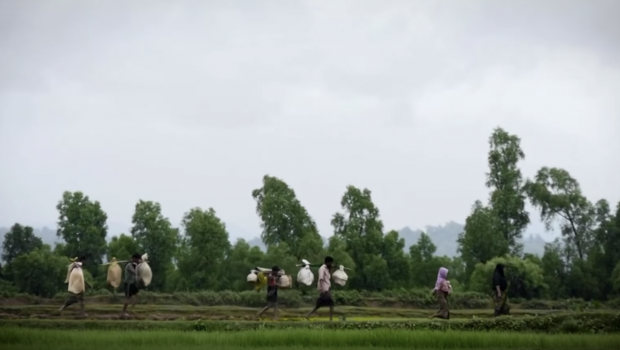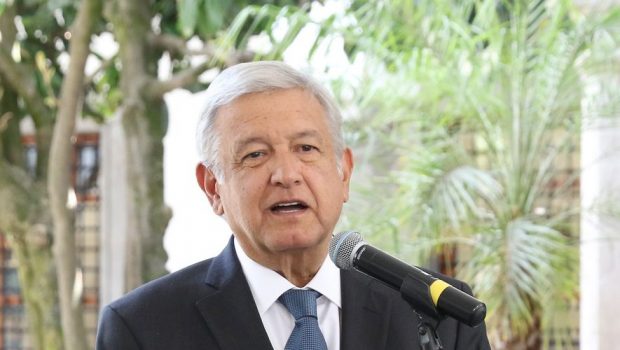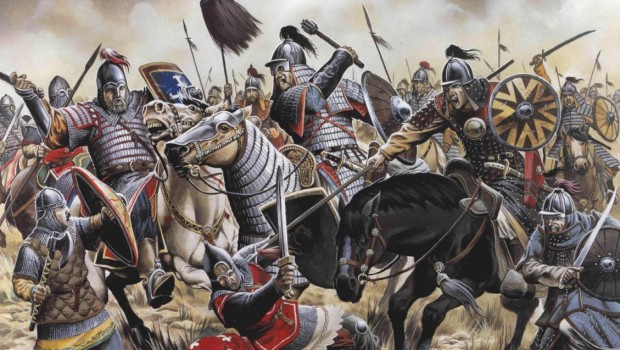The Deep Roots of Ethnic Cleansing in Myanmar
Las raíces profundas de la limpieza étnica en Myanmar
Hélène Dieck
Decades-long hatred between Myanmar Buddhist majority and its Muslim minority culminated in August with an ethnic cleansing campaign orchestrated by the Myanmar military in the Rakhine region. Soldiers, helped by Buddhist mobs, surrounded villages and burned them to the ground. Satellite images showed that 288 villages were devastated. Rohingya had no other choice than to flee to the border with Bangladesh, where they are now gathered in the world’s largest refugee camp. In only two months, a total of 620,000 Rohingya have fled the country, the fastest displacement of people since the Rwandan genocide. Zeid Ra’ad al-Hussein, the United Nations high commissioner for human rights, did not hesitate to call the situation an ethnic cleansing, defined as a “purposeful policy designed by one ethnic or religious group to remove by violent and terror-inspiring means the civilian population of another ethnic or religious group from certain geographic areas”. Even so, the plight of the Muslim minority has little chance to be heard. Indeed, neither the Buddhist majority nor the civilian government have any sympathy for an ethnic group perceived as illegal immigrants.
The Myanmar’s government reaction to the atrocities has been nothing less than disappointing. Two months after the military unleashed these atrocities, Daw Aung San Suu Kyi, head of the Myanmar government and Nobel Peace Laureate, finally visited the region. Her cabinet insisted that the military targeted Rohingya militants only and that no civilian was killed. As a matter of fact, the recent ordeal was initiated in August 25th, 2017, when Rohingya militants attacked police posts and a military base and killed 15 people. 370 militants have also been killed in the firefight. Although she was herself a political prisoner in 1991, fighting the military leadership, she has yet to denounce any wrongdoing by the military and refuses to challenge the military’s account of the situation. She downplayed the military operation, stating that “more than 50 percent of the villages of Muslims are intact”. Her government denied visas for a UN fact-finding mission and recently denounced international interference from the UN Human Rights Council and the Organization of Islamic Cooperation (OIC), arguing the issue was bilateral and not international. In late October, the Government announced it would confiscate the lands that the Rohingya have abandoned. The military also placed land mines at the border to prevent the Muslims from returning. For its part, the State media focused on the plight of the Rakhine Buddhists who have been displaced by the violence. When humanitarian aid has been delivered to them and they were eventually airlifted to safety, NGOs have not been able to provide aid to the Rohingya in the affected areas. The Myanmar government announced that they will help the refugees that have flocked to Bangladesh if they can provide proof they were residing in Rakhine. However these refugees had no time to gather any documents before their village was burnt to the ground. In addition, the Myanmar Government has deprived most Rohingyas of their citizenship.
Indeed, the Buddhist majority believes the Rohingya don’t belong in Myanmar. Hatred against these Muslims is deeply rooted. Buddhists and Muslims in Myanmar speak two different languages, eat different foods and are always wary of each other. Most of the hatred stems from World War II. When the Rohingya sided with the British during the war, the Buddhists fought for the occupying Japanese forces. Rohingya Muslims have progressively been denied civil and political rights. When the British prevailed, they sought to appease the Buddhists and refused that the Rohingya become independent or join today’s Bangladesh. In 1962, a military coup put aside the Constitution and sought to create a nationalist sentiment based on a Buddhist identity. The Rohingya became the common enemy. The government claimed that the Muslims had migrated on farmlands illegally. Persecution and discrimination became quite common. In 1978, Operation Dragon King drove 200,000 Rohingya outside Myanmar to Bangladesh. About 170,000 returned to Burma. In 1982, the government recognized 135 ethnic groups. Despite constituting a population of 1 million, the Rohingya were not on the list and became stateless. They are forbidden to practice their religion, to travel freely, to be doctors or teachers. They are denied access to health care or education. In 1991, another military campaign called Operation Clean and Beautiful Nation also targeted the Muslim minority, leading to 250,000 refugees. In 2012, 100,000 Rohingya fled to Bangladesh.
Although Daw Aung San Suu Kyi recently signed an agreement with Bangladesh to allow the Rohingya back in Myanmar, a conflict between the Buddhists and the Muslims is likely to remain. The new agreement doesn’t specify whether all refugees will be allowed to return or whether they will be required to produce documentation to prove that they were residing in the Rakhine region. Moreover, many refugees already stated they don’t want to return because their village was burnt to the ground, that they lost their family members and all their belongings. 120,000 of Rohingya have already been forced to live in what Amnesty International calls “concentration camps”, following the violence against them in 2012. Refugees’ return would undoubtedly grow the size of these camps and exacerbate the plight of this persecuted minority. In parallel, the military leadership doesn’t wish to see the Muslim minority back into Myanmar. Sr. Gen. Min Aung Hlaing, the commander in chief of Myanmar’s military, stated that any return of refugees would be conditional to the local Buddhists’ approval, dubbed the “real Myanmar citizens”.
For its part, the United States recently declared the situation an ethnic cleansing, opening the door to U.S. sanctions against the military. Several prominent international figures have called for the Nobel Peace Prize Laureate to respect the human rights of the Muslim minority. But more international pressure upon the civilian government is required for Daw Aung San Suu Kyi to risk her popularity, denounce the persecutions and challenge the military control over Myanmar’s security forces and the Rakhine region.
 Hélène Dieck received her PhD from Sciences Po, Paris, France. She was previously responsible for elaborating military doctrine at the French Ministry of Defense and served as a visiting researcher at the RAND Corporation, Washington, DC. She currently works as a migrant welfare specialist at Qatar Foundation and recently publishedThe Influence of Public Opinion on Post Cold War U.S. Military Interventions (Palgrave, 2015).
Hélène Dieck received her PhD from Sciences Po, Paris, France. She was previously responsible for elaborating military doctrine at the French Ministry of Defense and served as a visiting researcher at the RAND Corporation, Washington, DC. She currently works as a migrant welfare specialist at Qatar Foundation and recently publishedThe Influence of Public Opinion on Post Cold War U.S. Military Interventions (Palgrave, 2015).
©LiteralPublishing
El odio que se había venido acumulando durante décadas enteras entre la mayoría budista de Myanmar y su minoría musulmana culminó en agosto con una campaña de limpieza étnica orquestada por los militares de Myanmar en la región de Rakhine. Los soldados, quienes recibieron el apoyo de las mafias budistas, rodearon diversos pueblos y los quemaron dejándolos en ruinas. Las imágenes de satélite mostraron que 288 aldeas fueron devastadas. Los Rohingya no tuvieron más remedio que salir huyendo a la frontera con Bangladesh, donde ahora están reunidos en el campo de refugiados más grande del mundo. En sólo dos meses, un total de 620,000 rohingyas han salido del país, el desplazamiento más importante de personas desde el genocidio de Ruanda. Zeid Ra’ad al-Hussein, el alto comisionado de las Naciones Unidas para los derechos humanos, no dudó en calificar la situación como una limpieza étnica, y la describió como una “política intencional diseñada por un grupo étnico o religioso para eliminar—por medios violentos y que inspiran terror— a la población civil de otro grupo étnico de ciertas áreas geográficas”. Aun así, la difícil situación de la minoría musulmana tiene pocas posibilidades de ser escuchada. Incluso, ni la mayoría budista ni el gobierno civil han mostrado ningún tipo de empatía por el grupo étnico que ellos perciben como inmigrantes ilegales.
La reacción del gobierno de Myanmar ante las atrocidades ha sido nada menos que decepcionante. Dos meses después de que los militares dieran inicio a estas atrocidades, Daw Aung San Suu Kyi, jefe del gobierno de Myanmar y Premio Nobel de la Paz, finalmente visitó la región. Su gabinete insistió en que el ejército solamente atacó a los militantes de los rohingya y que ningún civil fue asesinado. De hecho, la reciente experiencia comenzó el 25 de agosto de 2017, cuando los militantes rohingya atacaron puestos policiales y una base militar matando a 15 personas. 370 militantes también murieron durante el tiroteo. A pesar de que Daw Aung San Suu Kyi fue una presa política en 1991, y luchó contra los líderes militares, todavía no ha denunciado ningún crimen por parte del ejército y se niega a cuestionar el comportamiento que han tenido los militares en esta situación. Ella ha menospreciado la importancia de la operación militar y ha afirmado que “más del 50 por ciento de las aldeas de musulmanes están intactas”. Su gobierno ha negado las visas al grupo de investigación organizado por la ONU y recientemente denunció la interferencia internacional del Consejo de Derechos Humanos de la ONU y la Organización de Cooperación Islámica (OCI), argumentando que el tema era bilateral y no internacional. A finales de octubre, el gobierno anunció que confiscaría las tierras que los Rohingya habían abandonado. Los militares también colocaron minas a lo largo de la frontera para evitar el regreso de los musulmanes. Por su parte, los medios estatales se enfocaron en la difícil situación de los budistas Rakhine que han sido desplazados por la violencia. Cuando se les entregó ayuda humanitaria y finalmente se transportaron a un lugar seguro por vía aérea, las ONG no han podido brindar ayuda a los rohingya en las áreas afectadas. El gobierno de Myanmar anunció que ayudarán a los refugiados que se hayan congregado en Bangladesh si pueden proporcionar pruebas de que anteriormente residían en Rakhine. Sin embargo, estos refugiados no tuvieron tiempo de reunir ningún documento antes de que su aldea fuera incendiada. Además, el gobierno de Myanmar ha privado a la mayoría de los rohingyas de su ciudadanía.
Incluso la mayoría budista cree que los rohingya no pertenecen a Myanmar. El odio contra los musulmanes está profundamente enraizado. Los budistas y los musulmanes en Myanmar hablan dos idiomas diferentes, comen diferentes alimentos y siempre han mostrado mucho recelo entre ellos. La mayor parte del odio data desde la Segunda Guerra Mundial. Cuando los Rohingya se pusieron del lado de los británicos durante la guerra, los budistas lucharon a favor de las fuerzas japonesas de ocupación. A los musulmanes Rohingya se les han negado progresivamente sus derechos civiles y políticos. Cuando los británicos acabaron por imponerse, buscaron apaciguar a los budistas y negaron el apoyo para que los Rohingya se independizaran o se unieran a lo que ahora es la Bangladesh actual. En 1962 un golpe militar dejó a un lado la Constitución e intentó crear un sentimiento nacionalista basado en una identidad budista. Los Rohingya se convirtieron en su enemigo común. El gobierno afirmó que los musulmanes habían estado emigrado de forma ilegal hacia las zonas designadas para tierras de cultivo. La persecución y la discriminación se hicieron muy comunes. En 1978, la Operación Dragon King logró expulsar a 200,000 Rohingya fuera de Myanmar obligándolos a entrar a Bangladesh. Alrededor de 170,000 regresaron a Birmania. En 1982 el gobierno reconoció 135 grupos étnicos. A pesar de constituir una población de 1 millón, los Rohingya no estaban en la lista de los 135 grupos étnicos elaborada por el gobierno, hecho que los convirtió de inmediato en apátridas. Tienen prohibido practicar su religión, viajar libremente, ser doctores o maestros. Se les niega el acceso a la atención médica o la educación. En 1991, otra campaña militar llamada Operación Clean and Beautiful Nation también atacó a la minoría musulmana, lo que llevó a expulsar a otros 250,000 refugiados. En 2012 cien mil Rohingya huyeron a Bangladesh.
Aunque Daw Aung San Suu Kyi recientemente firmó un acuerdo con Bangladesh para permitir que los Rohingya regresen a Myanmar, es probable que se mantenga un conflicto entre los budistas y los musulmanes. El nuevo acuerdo no especifica si todos los refugiados podrán regresar o si se les exigirá que presenten documentación que demuestre su anterior residencia en la región de Rakhine. Además, muchos refugiados ya han declarado que no quieren regresar porque su pueblo quedó hecho cenizas, perdieron a sus familiares y todas sus pertenencias. Ciento veinte mil de los Rohingya ya se han visto obligados a vivir en lo que Amnistía Internacional ha llamado “campos de concentración”, tras la violencia que se desató contra ellos en 2012. El regreso de los refugiados sin duda incrementará su número en estos campos y agravará la difícil situación de esta minoría perseguida. Paralelamente, los líderes militares no desean ver a la minoría musulmana de vuelta en Myanmar. Mientras tanto, Min Aung Hlaing, comandante en jefe del ejército de Myanmar, declaró que cualquier devolución de refugiados estaría condicionada a la aprobación de los budistas locales, conocidos como los “verdaderos ciudadanos de Myanmar”.
Por su parte, recientemente Estados Unidos declaró la situación como una limpieza étnica, abriendo la puerta a las sanciones norteamericanas contra los militares. Varias figuras internacionales prominentes han pedido que el Premio Nobel de la Paz respete los derechos humanos de la minoría musulmana. Pero se requiere una mayor presión internacional sobre el gobierno civil para que la popularidad de Daw Aung San Suu Kyi se ponga en riesgo, denuncie las persecuciones y desafíe el control militar sobre las fuerzas de seguridad de Myanmar y la región de Rakhine.
 Helene Dieck escritora y periodista. Ha sido la responsable de elaborar la doctrina militar de Ministerio de Defensa Francés e investigadora visitante del RAND Corporation, Washington, DC. Actualmente trabaja en el Qatar Foundation. Su libro se titula The Influence of Public Opinion on Post Cold War U.S. Military Interventions (Palgrave, 2015).
Helene Dieck escritora y periodista. Ha sido la responsable de elaborar la doctrina militar de Ministerio de Defensa Francés e investigadora visitante del RAND Corporation, Washington, DC. Actualmente trabaja en el Qatar Foundation. Su libro se titula The Influence of Public Opinion on Post Cold War U.S. Military Interventions (Palgrave, 2015).
©Literal Publishing. Queda prohibida la reproducción total o parcial de esta publicación. Toda forma de utilización no autorizada será perseguida con lo establecido en la ley federal del derecho de autor.










